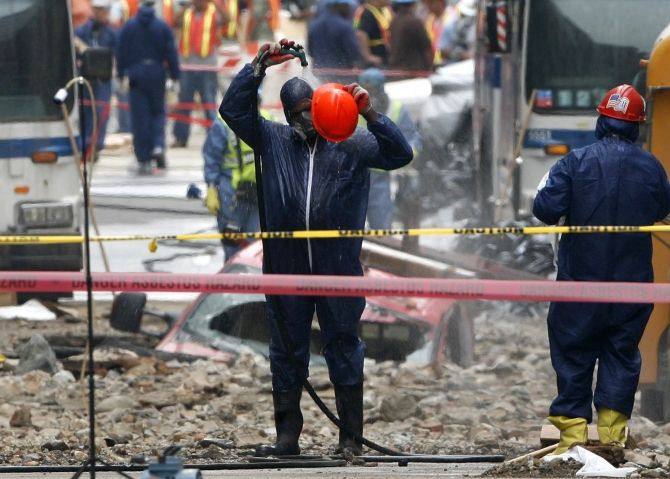Around 8,000 Cancer Deaths in UK Are Job-Related

Nearly 5.3 percent or around 8,000 of all cancer-related deaths in the U.K are due to occupations, especially those that require people to work around asbestos and diesel fumes or work in shifts, a new study says.
Researchers calculated how many deaths are caused by risk factors associated with carcinogens related to work. The list of these cancer-causing substances came from International Agency for Research on Cancer (IARC).
More men than women suffered from cancers related to occupations. According to the study, 8 percent men died from cancer compared to 2 percent of women.
Night shift work came second in the list of work related cancers. Nearly 2,000 female breast cancers were due to night shift work.
Exposure to mineral oil, metals, silica, diesel fumes were found to be the cause of various cancers. Diesel fumes have been recently classified as a cancer causing agent by IARC. Exposure to substances from printing industries caused resulted in more than 1,700 cancer cases.
Researchers say that this figure might be conservative and that actual numbers might be even higher.
According to the Centers for Disease Control and Prevention, an estimated 4 percent to 10 percent of all cancers in the U.S. are related to occupational exposures.
"This study gives us a clear insight into how the jobs people do affect their risk of cancer. We hope these findings will help develop ways of reducing health risks caused by exposure to carcinogens in the workplace," said Dr. Lesley Rushton, an occupational epidemiologist from Imperial College London and lead author of the study, reports Cancer Research U.K.
World Health Organization says that every tenth lung cancer death is mostly due to occupational exposure.
"The cancer with the greatest number of cases and deaths linked to work is lung – a disease which is hard to detect early and has poor survival. Over 30 occupational exposures have been identified by IARC as definite or probable lung cancer causing substances," Rushton said.
Researchers say that the first line of defense is to have a healthy lifestyle and giving up smoking.
"One of the best ways we can beat the disease is by preventing it in the first place. Smoking has the single biggest impact on lung cancer risk, but work-place risks are also having a significant effect," Rushton said.
Globally, more than a million deaths due to cancers are related to workplace or other environments. 107 substances, mixtures and exposure situations have been classified as cancer-causing agents.
"It’s very worrying to see so many people developing and dying from occupation-related cancers. A large proportion of the deaths are a result of exposure to asbestos in past decades and improved safety measures should mean that in the next generation or so we will see this number tail off dramatically," said Sara Hiom, director of information at Cancer Research UK.
"The Health and Safety Executive has commissioned a review of the evidence on shift work and cancer – at the moment it’s still only classified as a probable cause of cancer. Once the review is complete in 2015, we will have a more definite understanding of the role it may play in influencing cancer risk," Hiom said.
"Not smoking is the single most important thing that can reduce the likelihood of developing cancer - to put this in perspective, there are around 43,000 cancer deaths due to smoking in the UK each year. Maintaining a healthy weight, cutting back on alcohol and taking plenty of exercise can also have a big impact on reducing the risk of cancer," Hiom concluded.
The study is published in the British Journal of Cancer.



























